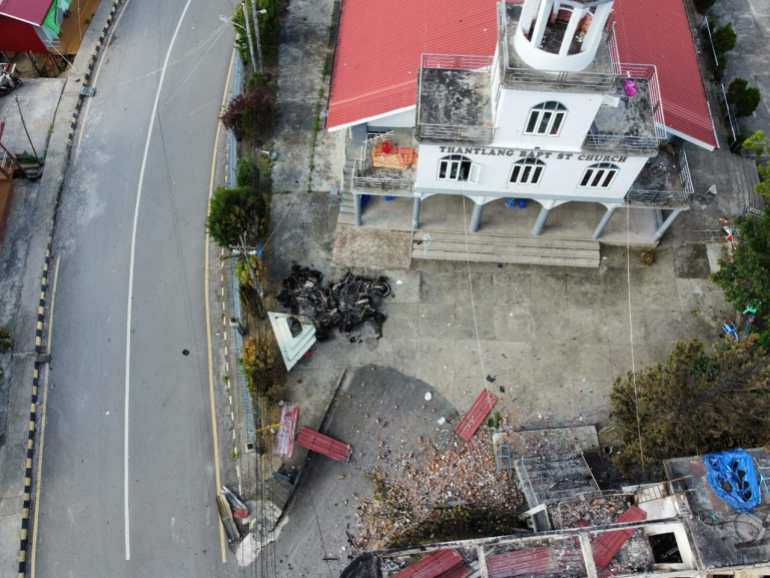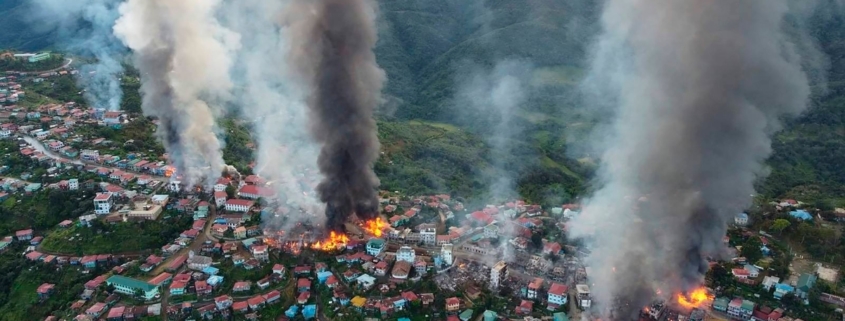Scramble for evidence after attack in northwestern Myanmar | Military News
Thang Biak discovered his house in Myanmar’s northwestern Chin State had burned down from watching the television news in neighbouring India.
He had fled Thantlang, a hilltop town of roughly 8,000 people, with his three sons and other residents on September 14, crossing into Mizoram two weeks later.
“When we fled, we couldn’t bring anything. Now all of our property has been destroyed,” said Thang Biak, for whom Al Jazeera has used a pseudonym due to concerns of military reprisals. “When I learned that my house had burned, I was so depressed that I couldn’t sleep or eat,” he added.
His home was one of more than 160 houses and two church buildings in Thantlang that were burned down on October 29, as the military intensified its operations to root out the civilian armed groups that have emerged across the country since the coup on February 1.
Governments, rights organisations and civil society groups have condemned the military for the destruction in Thantlang and have demanded it be held accountable.
More than 500 organisations, including Human Rights Watch, signed a statement last week calling on the United Nations Security Council to act urgently to “end [the] Myanmar junta’s campaign of terror.”
The United States said the incident “lays bare the regime’s complete disregard for the lives and welfare of the people of Burma,” and said the attacks “underscore the urgent need for the international community to hold the Burmese military accountable”.
But as calls for military accountability grow, those collecting and sharing evidence of what happened in Thantlang face numerous risks and obstacles, including fear of arrest or retaliation and an ongoing internet shutdown. Local sources told Al Jazeera that they have also been unable to identify witnesses because Thantlang’s residents had fled earlier waves of violence in September, and the town has been occupied by soldiers.
“We journalists could not go to document ourselves … We could not get [sufficient] evidence and communication has been cut off,” said Salai Zing, who works for a Chin State-based media outlet and who requested Al Jazeera call him by his nickname.
 Three churches were hit in the…
Three churches were hit in the…

